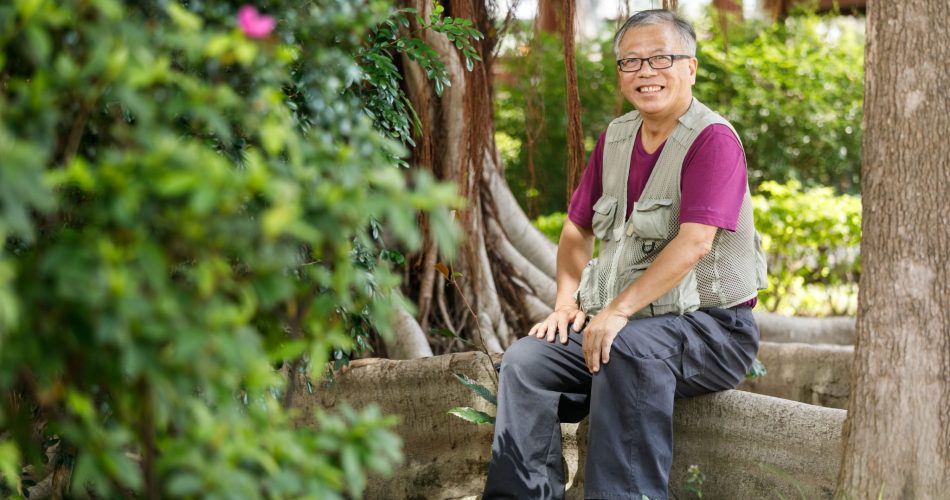Perhaps the general public once thought chemistry was irrelevant to them. Yet, when the police deployed tear gas to disperse protestors during the Anti-Extradition Bill movement, renowned chemistry expert Dr. K. Kwong explained in a scientific angle the damage tear gas has on the human body. What followed was the COVID-19 outbreak and the invention of his “HK MASK” which can be reused by simply replacing the filter. He shared the how-to online and encouraged everyone to make or even modify his/her own reusable masks in hopes that people in Hong Kong and around the world will never have to suffer from shortage of masks. K. Kwong’s generosity, pragmatism and science-backed candidness have bridged the gap between chemistry and our everyday lives. He also settled our nerves when medical-grade masks were nowhere to be found. Indeed, K. Kwong was not joking when he promised to “save the world with science” when he dedicated himself to science.
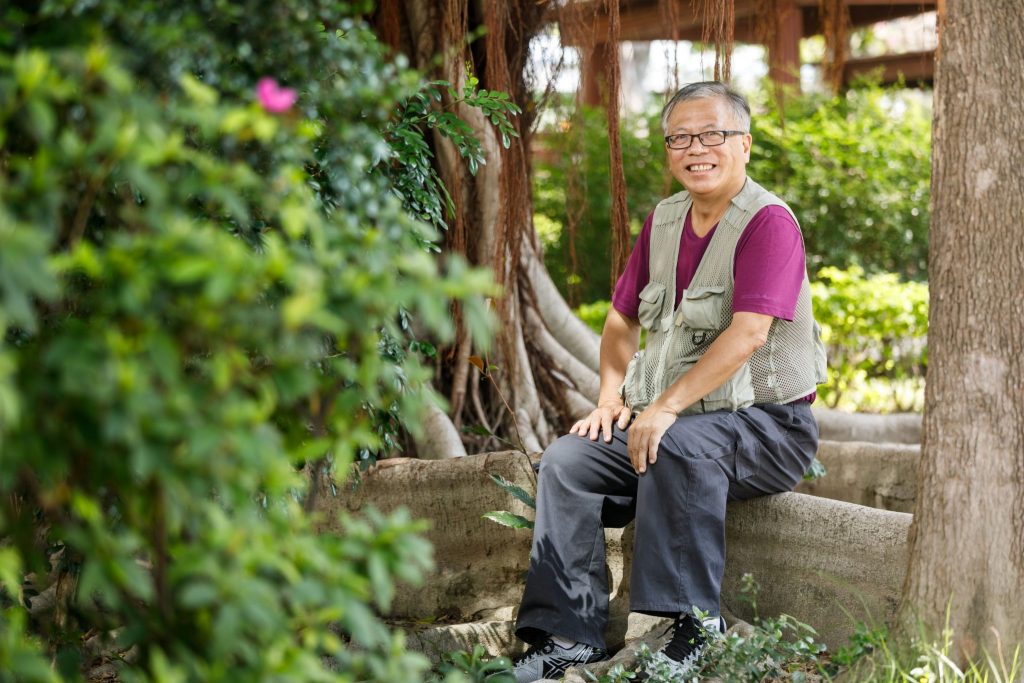
Graduated with first-class honours from the Chinese University of Hong Kong, Dr. Kenneth Kwong Si-san furthered his studies, obtained a Ph.D., served as a lecturer at the university, and later on became one of the most sought-after chemistry tutors for DSE students in Hong Kong. It is hard to imagine that a scholar with such a brilliant resume was once a troublemaker in the eyes of the teachers. K. Kwong recalled, “I was not a good student but I love reading. My passions could hardly be fulfilled by textbooks and I am not interested in rote knowledge. I have instead developed a habit of seeking answers in extracurricular books at a young age. My peculiar questions perplexed teachers. For example, I asked, ‘Why do boys and girls use different toilets?’ The teacher replied, ‘Because boys and girls are different.’ I then probed, ‘What is the difference? Why can’t they go to the same toilet?’ The teacher replied, “Because if they go to the same toilet, they will see each other’s private parts, which is not good.’ I insisted, ‘Why can boys look at each other’s then?’ These questions were not acts of rebellion but genuine curiosity for the unknown. When teachers could not solve my doubts, I turned to books for answers. I did not have many friends as an unruly kid. So I preferred staying in the library to read freely, and this eventually developed into the habit of self-learning. My academic performance was once subpar, but my talent in art and painting often garnered prizes. Unfortunately, it is hard to make a living as an artist.”
The eternal debate of whether students should date in secondary school has never been a mystery to K. Kwong, who attributes the “attraction between opposite sex” as fuel for his diligence in school. “I have always liked literati girls who study in elite schools. I worked hard to minimize our difference. Although I came from an underprivileged background, my eloquence helped me connect with outstanding girls from the school nearby. However, the difference in our backgrounds made me feel alienated around them. I realized that I must study hard and focus on developing a long-term career. After all, earning social and economic status is the prerequisite to establishing a promising relationship. I might not be a genius in school but I am very focused and perseverant, and I spent more time reading than others. I strived to apply these strengths onto my studies. Later, my brother was admitted to the Chinese University of Hong Kong, which further boosted my determination to study in university. Once I made up my mind, I would go all the way to make things work. At that time, I got up at three or four in the morning to study and went to bed at eight or nine at night to avoid the distraction brought on by prime-time TV programmes. I worked hard for half a year to excel in the public examination and was successfully promoted to Form Six at the Kowloon Technical School. I then found that all the students around me had excellent grades, which inspired me to work even harder. Even when I was walking to school, I would review contents of the previous lessons in my head. A year later, I was admitted to the Chinese University of Hong Kong, where my first choice was a physics major but my grades unfortunately could not meet the programme requirement. Finally, I chose chemistry. After the first exam, my grade turned out to be the second best in class. I soon realized my gifts in studying and predicting questions! Since then, my studies have been smooth. I love studying at university for I could choose to learn about the subjects that interested me. I might have cheated in my primary and secondary school years. When I went to university, I gave up cheating but instead excelled in predicting exam questions. For example, I knew that a professor made a reference to an academic journal when he prepared the examination questions, so I paid attention to the colour of the page edges to guess which topics he had read repeatedly and thus which questions he would formulate.”
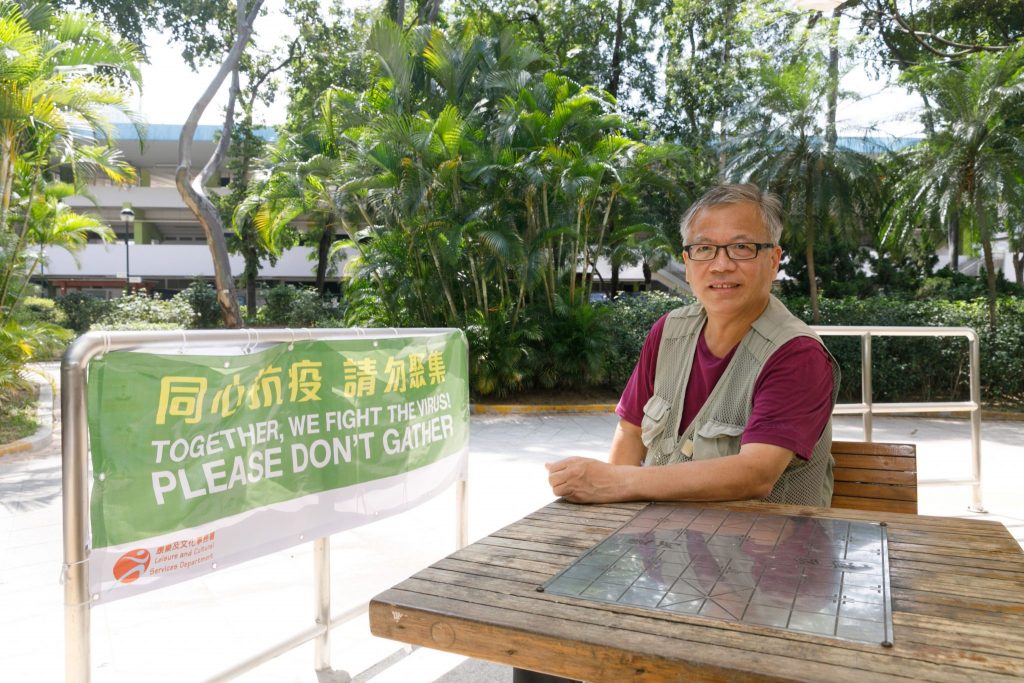
As an “unusual student”, K. Kwong has surprisingly dedicated himself to education, with very convincing reasons, “I enjoy teaching as I see it as a process of inspiring others with my own experience and apperception. I am just an ordinary man, yet I can still make my best contribution. Who says a humble background would stop anyone from becoming a university professor or high achiever? My childhood experiences have taught me problem-solving skills, and teaching is showing others how to solve problems. I first tasted the satisfaction teaching brings when I started my career in education at night schools during my freshman year of college. I began tutoring and earned good money in my junior year. In 1980, I studied my Ph.D. degree and started to do research at the University of Hong Kong, in hopes of solving the world’s problems with science. This is what science does: we first come up with a hypothesis, then we test it via experiments, which in turn can change theories. I wanted to become a scientist but later realized that I did not have enough mathematics training to study physics in depth. Without sufficient knowledge in physics, I was not able to dive into quantum mechanics, a prerequisite for many thorough chemistry studies, which would in turn bring my career as a scientist to an end prematurely. On the other hand, I am eloquent and persuasive. Though I cannot become a scientist, why not pave the path for others to become scientists? I would still be able to achieve my dream, and that is to save the world with science. As I eventually realized my talent as an educator, I have been living my dream through teaching.”
K. Kwong has taught countless students, but the training he gave his daughter was perhaps the most comprehensive. “My daughter has long graduated and is now a medical doctor. I have never decided for her what to learn and what not to learn. Regardless of her age, I taught her everything she wished to learn. She would also ask difficult questions, some about science, some about logic. Once, she pointed at a bird and asked me, ‘Why not call sparrows common birds? There are common people, why aren’t there common birds?’ I would try to answer her or discuss with her on the subject matter. When she was in kindergarten, I realized she had grasped the concept of zero and was skilled in mental arithmetic, so I taught her simultaneous equation which she picked up quickly. Is this innate talent? Perhaps, but knowledge and skills acquired through nurture are also important. My method is mainly learning through play. I liked asking my daughter questions to inspire her to think. For example, when we were hanging out in the park, I would point at the recreational facilities and ask her, ‘Why are there openings in the tables? Why are there handles dividing the benches into individual seats?’ She loves to observe and has developed a curiosity for her surrounds since young. I stopped teaching her after she had become a secondary school student because she had already learnt to acquire her knowledge through reading. She has already surpassed me. She was good at computer programming and was awarded at contests as early as she was in Form One. Like me, she enjoys self-learning. One thing we have in common is we do not reject things that are different from our beliefs. We would deny or deconstruct them, but we would not refuse an opportunity to study and understand them. Some do not care for subjects or views they reject, but I would look into why I do not like them. This is the scientist’s spirit.”
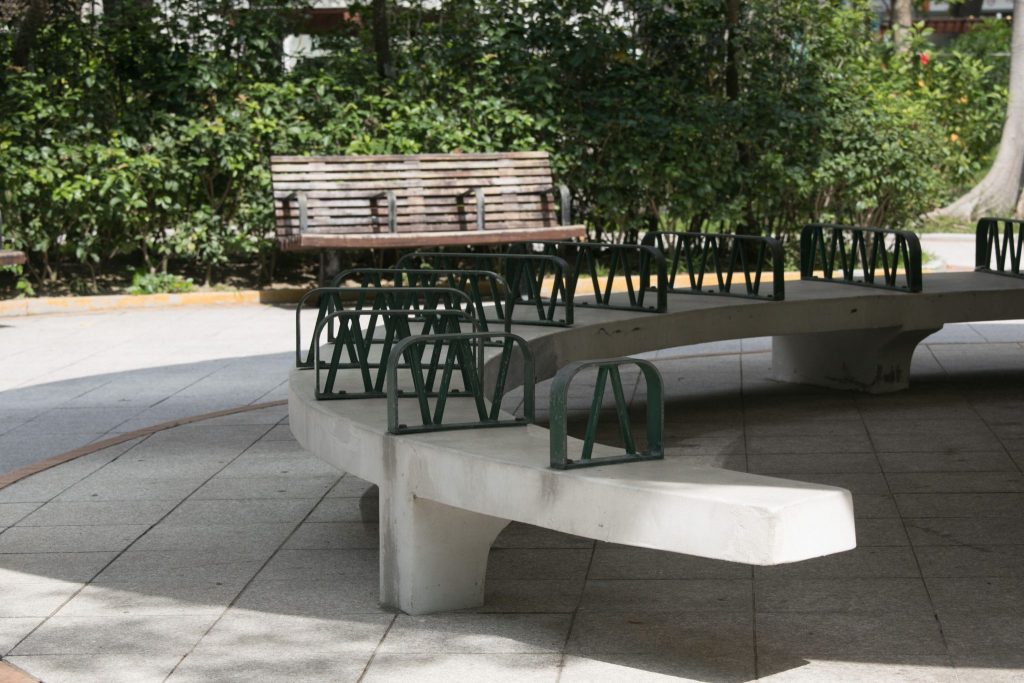
K. Kwong thinks that a major deterrent to learning is parents’ pampering. “If a pencil is broken, many parents will immediately buy a new one while I will teach my students to wrap the pencil lead with paper and continue to write with it. A pencil has its own value, which will be wasted if we just throw it away instead of extending its life. Wealthy parents take the shortcut of hiring others to teach their children. They find the best teachers but fail to understand their children’s studies. Actually, children learn from their parents and imitate people who live with them. I think that all parents should accompany their children to play and study. Parents should try to answer children’s questions instead of asking others to provide the answers. If you do not know the answer, inquire others, try to understand and relay the information to your children as you are their best role models. I understand that most parents are very busy as I, too, had to work seven days a week during my daughter’s teenage years. Fortunately, my wife has done a good job in teaching and guiding her. I also played and chatted with her during my leisure time. I even played video games with her until she said she had to stop and start studying. Many parents fail to give children the attention they need and only challenge their grades and implore them to invest further efforts into their studies. Some parents even force their children to be top of the class. The disadvantage of always being the top student would be the incapability of thinking in a well-rounded manner as he/she only sees everything from the top. Providing all the resources children need starting from day one is detrimental to their studies. I am only a successful teacher because I came from knowing nothing. This experience taught me how to learn. I came from a poor family and had to line up at a charity for merely three coloured pencils – yellow, blue and red. Other children brought their own coloured pencils with 12 colours. However, my drawing was more beautiful than theirs because I figured out I could mix my colours. Tough situations inspire strength, but some people may simply give up drawing if they only have three colours.”
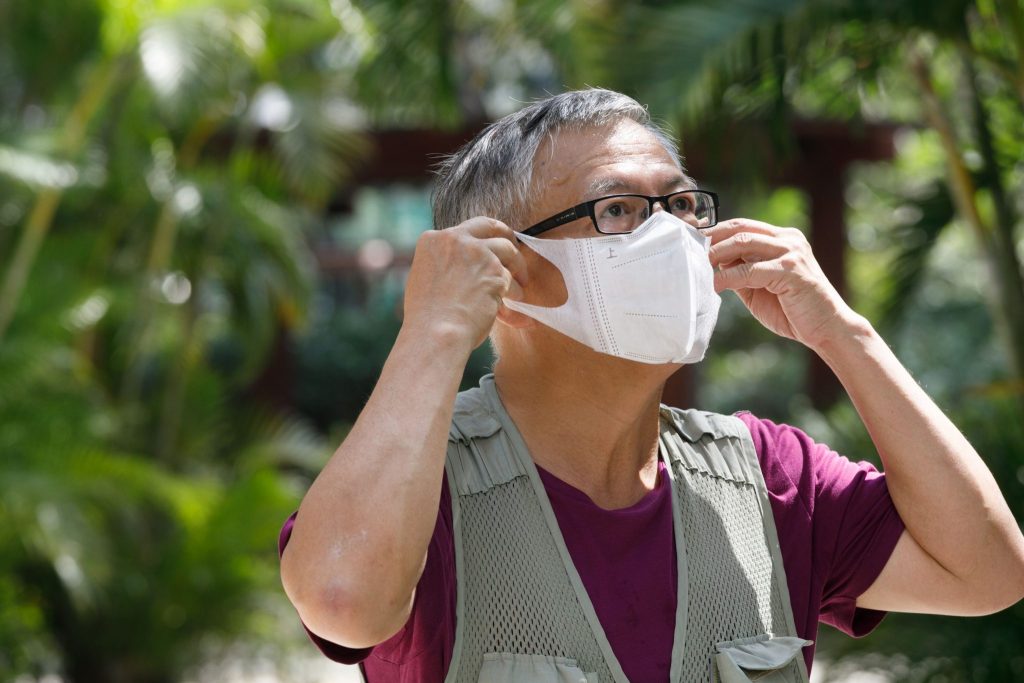
K. Kwong always mentions the scientist’s spirit. What is it exactly, and does everyone have a scientific mind? “Scientific minds can be trained. First, we should learn inquisition, which is very important. If you are not inquisitive, you do not know how to criticize. If I tell you that your mask is turned upside down, you will not trust me at once. You would wonder about my comment since the wire is on the top of your mask. I learnt at a young age that critical thinking is essential to finding out the truth and that we should not trust authorities blindly as even experts have blind spots. Non-scientific facts should always be doubted – this is just who I am. People without scientific minds may say ‘The sun will rise tomorrow.’ You can say that this remark is based on scientific evidence, but their words are not accurate. People with scientific minds will tell you the precise time of sunrise because it can be calculated. When I implore my students to take their studies seriously, I ask them for an action plan rather than an empty promise. People with scientific minds speak with information rather than vague statements with lesser meaning.”
Epilogue
K. Kwong wanted to save the world when he started his pursuit for science: it is a dream that he has kept and unceasingly pursued. Under the shortage of masks, HK MASK was invented in a short time to help the humanity with science. Unfortunately, science is a low priority in Hong Kong’s education system. K. Kwong said, “Hong Kong’s policies focus on immediacy. If there is no immediate effect, people would put it aside. During the outbreak of COVID-19, the shortage of masks was stemmed from a lack of manufacturers in our city – a result of having a tunnel vision only for things that promise immediate benefits. People here do not have basic scientific knowledge. I ask a simple question: “What are the requirements of the material in a mask?” No one could provide an answer. Masks are the product from a few decades ago yet nobody truly understands the scientific make-up. This is because selling masks do not reap huge profits and hence there is no successor. The British education system values science and mathematics. When I was a student, more emphasis was placed in these subjects. We had to learn logic as a topic in foundation mathematics, but this is non-existent in Hong Kong’s current education system. The pursuit of education in the sciences is also hindered by the idea of immediate benefits, namely, it is not something that earns big bucks, which is the benchmark of success nowadays. However, isn’t solving problems for others also a kind of success? The perception of a scientist is always different from that of the general public. While the general public worry about a global recession, I am concerned with intensifying global warming which will release a huge amount of ancient bacteria and viruses from the Arctic. People in the modern world do not have the antibody, so mass casualties will definitely ensue. Scientists always have their own worries – while most people value money, there are a lot of things money cannot buy.”

